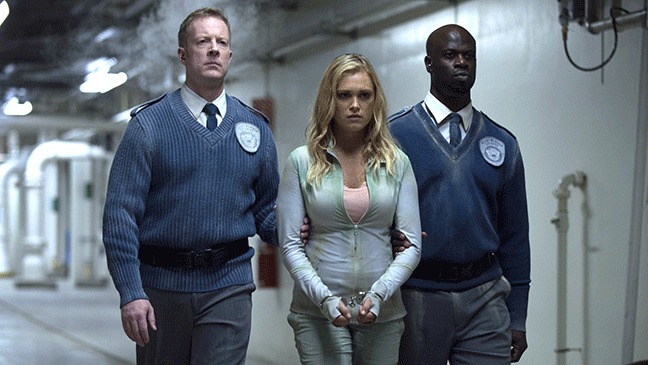The 100 (2014)

“The 100,” a science fiction drama television series that premiered in 2014, is an adaptation of Kass Morgan’s novel series of the same name. Created by Jason Rothenberg, the show is set in a post-apocalyptic world where humanity must grapple with the consequences of its own actions. Spanning multiple seasons, “The 100” delves into themes of survival, morality, and the resilience of the human spirit. This essay explores the series’ narrative structure, character development, thematic depth, and its impact on viewers.
The narrative of “The 100” begins nearly a century after a nuclear apocalypse devastated the Earth, leaving the surface uninhabitable. Humanity’s survivors have lived in space on a massive space station known as “The Ark,” which is running out of resources. In a desperate bid to save the remnants of humanity, the Ark’s leaders decide to send 100 teenage delinquents, who have been imprisoned for minor offenses, back to Earth to determine if it is once again habitable.
The premise of the series is both thrilling and thought-provoking. The 100 teenagers, led by Clarke Griffin (Eliza Taylor) and Bellamy Blake (Bob Morley), face the challenges of survival in a dangerous and unfamiliar environment. They encounter various threats, including harsh natural conditions, hostile human factions, and remnants of pre-apocalyptic technology. The series intertwines elements of survival drama with science fiction, exploring the complexities of rebuilding civilization and making morally challenging decisions.

The series is notable for its complex and evolving characters. Clarke Griffin, portrayed by Eliza Taylor, is the central protagonist and emerges as a natural leader. Her character evolves from a reluctant and idealistic teenager into a determined and pragmatic leader. Clarke’s journey is marked by difficult decisions and moral dilemmas, highlighting her growth and resilience. Taylor’s performance captures Clarke’s internal struggles and the weight of her responsibilities, making her one of the most compelling characters in the series.
Bellamy Blake, played by Bob Morley, is another key character whose development is central to the series. Initially portrayed as a rebellious and self-serving individual, Bellamy’s character arc explores his transformation into a dedicated and selfless leader. His relationship with his sister Octavia (Marie Avgeropoulos) and his evolving role within the group add depth to his character. Morley’s portrayal effectively captures Bellamy’s growth and the complexities of his motivations.
Supporting characters, such as Octavia Blake, Raven Reyes (Lindsey Morgan), and Murphy (Richard Harmon), also contribute significantly to the series. Each character has a unique storyline that intersects with the broader narrative, adding layers of complexity to the show. For instance, Raven’s technical expertise and resilience make her an invaluable member of the group, while Murphy’s character provides a more morally ambiguous perspective on the challenges they face.
“The 100” delves into a range of thematic elements, including survival, morality, leadership, and the nature of humanity. The theme of survival is central to the series, as the characters must navigate a world where resources are scarce and threats are ever-present. The series explores how extreme circumstances can push individuals to their limits and force them to make difficult choices.
Morality is another key theme, with the series often presenting situations where characters must choose between the greater good and their personal beliefs. The show examines the ethical implications of leadership and the consequences of decisions made in the name of survival. The moral complexity of the characters’ choices adds depth to the narrative and invites viewers to consider the nature of right and wrong in a world devoid of clear answers.
Leadership is a recurring theme, particularly through the character of Clarke Griffin. Her role as a leader is fraught with challenges and highlights the burdens of making decisions that affect the lives of many. The series explores different leadership styles and the impact of power on individuals and groups.
The nature of humanity is a theme that permeates the series, as the characters grapple with their own humanity and the legacy of their predecessors. The show questions what it means to be human in a world that has been fundamentally altered by disaster and explores the capacity for both cruelty and compassion.

“The 100” has received praise for its engaging storytelling, complex characters, and thought-provoking themes. The series has been noted for its ability to tackle difficult and often controversial topics, such as ethics in leadership, the consequences of war, and the nature of humanity. Its portrayal of a diverse range of characters and its willingness to address complex moral questions have garnered a dedicated fan base and critical acclaim.
The show’s impact extends beyond its narrative, influencing discussions about the portrayal of leadership, morality, and survival in media. Its depiction of a dystopian future and the challenges faced by its characters resonate with viewers, providing a lens through which to examine contemporary issues.

“The 100” (2014) is a compelling and multifaceted series that offers a rich exploration of survival, morality, and human nature. Through its intricate narrative, complex characters, and thematic depth, the series provides a thought-provoking and engaging experience for audiences. The show’s ability to blend science fiction with drama and its exploration of challenging ethical questions make it a noteworthy entry in the genre. As the characters navigate their post-apocalyptic world and confront the consequences of their actions, “The 100” remains a powerful reflection on the resilience and complexity of the human spirit.











